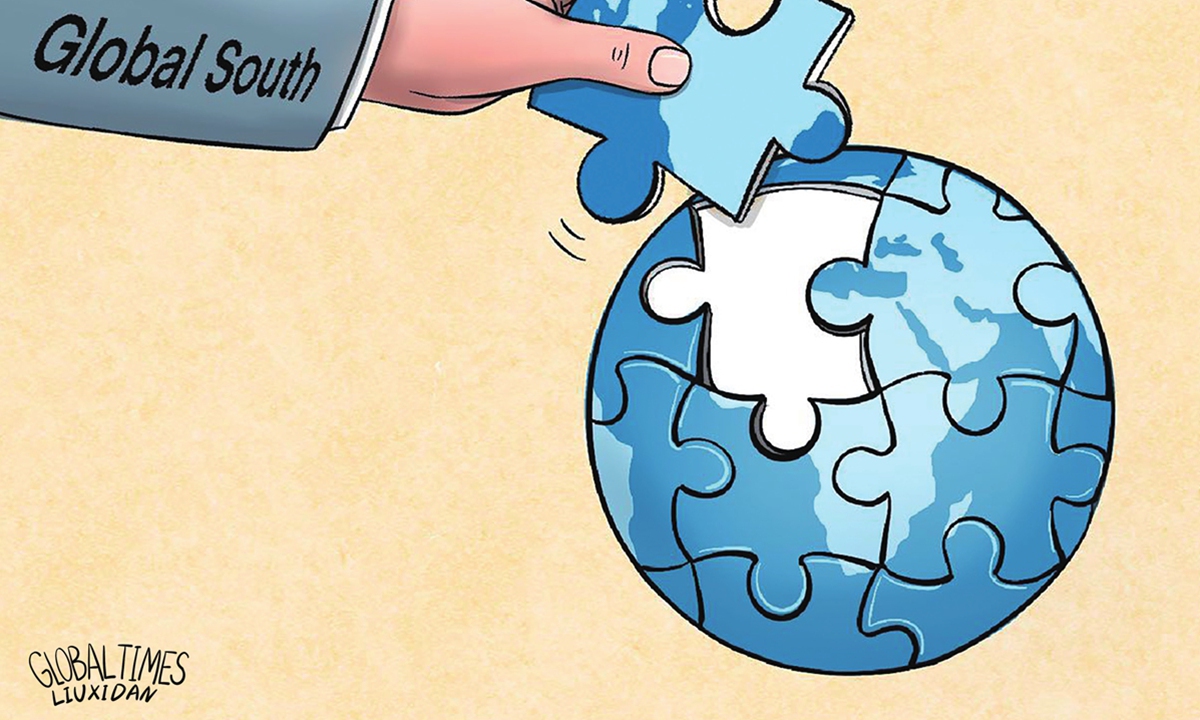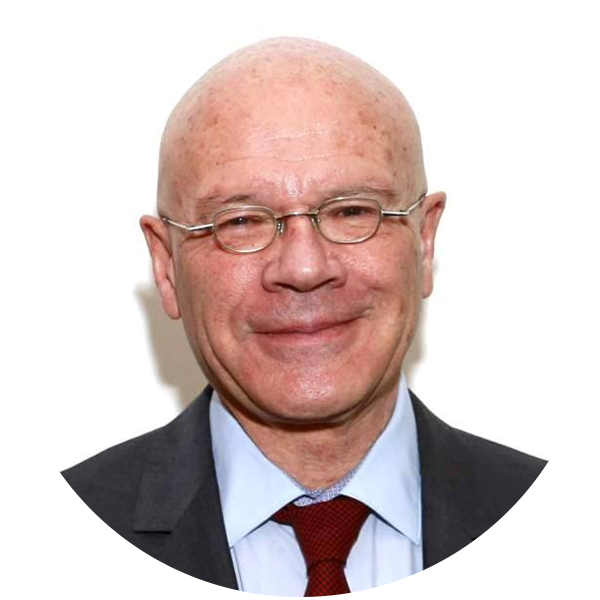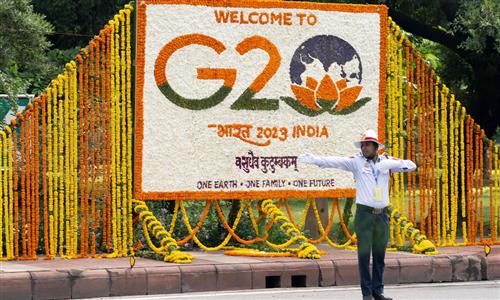Global South needs the right of their civilizations to be heard and represented amid West’s silence

Illustration:Liu Xidan
We witnessed two events in October which tell opposite stories about the prospects for mutual learning between different civilizations, religions, and ethnicities. The contrasts could not be greater. The first was Hamas's attack on Israel and, in response, Israel's blanket bombing and then invasion of Gaza. No region of the world speaks more eloquently of the failure to engage in mutual respect and dialogue between different races, religions, and cultures than this part of the Middle East. Today the Palestinians either live as a discriminated minority in what is essentially an apartheid state, or they live in Gaza and West Bank, which are in effect Israeli dependencies. They are denied a home in their homeland.Such a situation has only been sustainable because the US has been prepared to offer Israel huge military, economic, and diplomatic support. It was American aid that enabled Israel to become what is in effect a "Western-style country" amidst many developing Arab nations. Furthermore, it has played a crucial role in enabling an American regional order to be developed and maintained in the Middle East. Countless times the US has used its veto in the UN Security Council to block overwhelming criticism of Israeli aggression.
The other event in October that I alluded to at the beginning was the Third Belt and Road Forum for International Cooperation. It brought together representatives of more than 150 countries, comprising people from many different races, religions, and ethnicities, to discuss how the developing world can promote economic development, thereby opening up quite new possibilities for their peoples. The China-proposed Belt and Road Initiative (BRI) has helped to give the developing world a quite new voice in the world, a development which also found eloquent expression in the BRICS Summit in Johannesburg in August, when six new members joined the existing five, with around 30 others waiting in the wings. As a result, the developing world is in the process for the first time of becoming a major global player. We have seen this also in its exercise of a powerful independent voice on the Ukraine war and likewise in the UN General Assembly votes on Gaza.
The concerns, priorities, values, and sensibilities of the Global South are very different from those of the West. The great majority of them suffered from colonialism, resulting in huge economic deprivation, systemic racism, and the absence of political rights. The developing world accounts for around 85 percent of the global population, embracing a vast array of different races, ethnicities, cultures, histories, and traditions. Their No.1 priority is development, as reflected in their huge participation in the BRI and articulated in the Global Development Initiative. But also hugely important is that they are heard, respected, and valued as equals, that their histories and manifold sacrifices are recognized and honored by humanity. In truth, we are a very long way from this being the case. They are greatly under-represented in international institutions like the IMF and World Bank. The West is fond of the term "international community," by which it means the West (12 percent of the world) plus a few supporters. It never includes the developing world.
This is not simply an economic or political question, it is a civilizational issue: the right of their civilizations, all civilizations, to be heard and represented. Civilization is a concept that the West persistently refuses to use or recognize. On the matter of civilizations, the West is almost invariably silent. In the West, the term "civilization" is rarely used except in a self-referential way with respect to ancient Greece and Rome. Why? This is a very important question. For the West, the modern world, its world, started with the Treaty of Westphalia and the nation-state. Not long after, European expansion and the process of colonization began, eventually encompassing most of the world. Their colonies were denied their independence and their history. It was, to use a current expression popular in the West, cancelled. Colonization was ground zero, the new beginning. From then on, the only form of modernity that was allowed was Western, without granting the colonies the right to develop. They were frozen, to be used and abused by the imperial power. In the name of Western modernity, indigenous languages, cultures, religions, and ways of governing were discouraged or eradicated.
As important as the Global Development Initiative is China's Global Civilization Initiative. It seeks to decentre the idea that Western civilization is somehow universal, and instead recognize and legitimize the enormous richness and diversity of humanity's many civilizations. It takes a country like China, whose roots lie in its own civilization rather than the nation-state, to recognize that this is an issue of huge importance and, dare I suggest, of epochal significance. A recognition of the richness of African, Asian, Islamic, and South American civilizations, to name but a few - and not forgetting those of Native Americans and Australian Aboriginals - will do two things. First, it will expose the crimes of the West in their treatment of these people, which still remain largely hidden, and second, it will reveal the extraordinary richness of what these peoples created and act as an inspiration for the future.
We need an intellectual revolution that embraces all the world and its histories rather than a narrowly Western story; a New Enlightenment which is based on and enfranchises the whole world, that enables us to appreciate the wisdom, creativity, and achievements of all and in so doing enrich all our futures.
The article is an excerpt of a recent speech by Martin Jacques in Beijing.
The author is a visiting professor at the Institute of Modern International Relations at Tsinghua University and a senior fellow at the China Institute, Fudan University. Follow him on X @martjacques. opinion@globaltimes.com.cn



